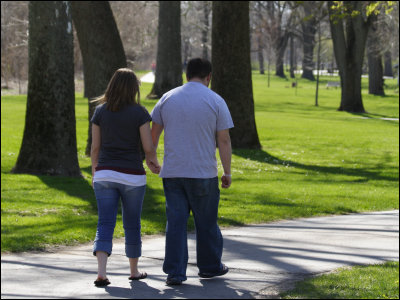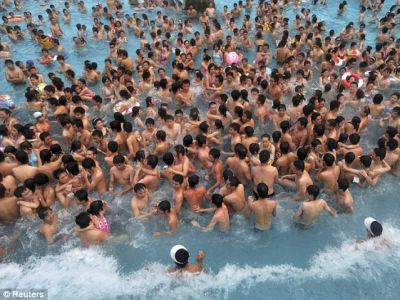Wildlife range is expanding in national parks closed due to the effects of the new coronavirus

In response to the global epidemic of the new coronavirus infectious disease (COVID-19), restaurants and public facilities have been closed and business hours have been shortened in each country. The famous Yosemite National Park in the United States was closed from the end of March 2020, and all tourists were denied admission. As a result, it is said that wild animals living in the park are expanding their range of action so that they will appear in places where they do not appear.
Amid coronavirus shutdown, Yosemite wildlife roams free-Los Angeles Times
https://www.latimes.com/california/story/2020-04-13/yosemite-national-park-closed-wildlife-waterfalls-muir
Originally, March to April was the time when the most tourists visited Yosemite National Park, and in April 2019, about 300,000 tourists visited Yosemite National Park. However, on March 20, 2020, Yosemite National Park was closed to prevent the spread of the new coronavirus, leaving only 100 to 200 employees in a huge valley of approximately 12 km.
It is said that 300 to 500 black bears live in Yosemite National Park. Although it is a bear that does not usually appear in places where people can see it, the number of sightings has risen since it closed. A picture of a black bear emerging from the back of the forest and walking through the field is published on the official Twitter account in Yosemite National Park.
It could be said that spring, summer, and fall are just one big meal to a black bear.If that's the case, then grass is a bear's favorite springtime appetizer! Check out this bear that we spotted yesterday around lunchtime, mowing the grass just across from Yosemite Village! pic.twitter.com/Gcgn184lyY
— Yosemite National Park (@YosemiteNPS) April 10, 2020
Also, a movie of 'a scene where American bears climb trees' that is hard to see normally is released. According to Yosemite National Park official Dane Peterson, the number of American bears witnessed has nearly quadrupled since the number of people visiting the park has dropped sharply.
Yosemite National Park is home to about 300-500 black bears. Though there hasn't been an increase in their population since the park closure, bears have been seen more frequently than usual.Check out this bear caught on camera yesterday, climbing a tree next to ranger housing! pic.twitter.com/9rXxIOMRbR
— Yosemite National Park (@YosemiteNPS) April 14, 2020
Peterson said, 'Wild animals are usually in national parks, but they hide and live so that they can escape the eyes of the human eye.' I'm guessing that the range of action of the wild animals that live there is expanding.
The National Park, which is surrounded by nature and isolated from the city, has a very low risk of COVID-19 infection in Yosemite National Park, and there is no need to worry about social distance. He enjoys hiking without wearing it. However, a small grocery store in a village near Yosemite National Park limits the number of people who can enter the store to 10 at a time, and it is said that hand washing and disinfection are obligatory to enter the park.
'If a new coronavirus arrives in this valley, I'll be infected (and I'll be right away),' Peterson said, and the risk of infection is always borne by humans.
According to Ken Concroft, a clerk of the grocery store, the use of cloth bags is prohibited at stores near the park so as not to become a source of infection with the new coronavirus. 'We have to consider the potential spread of the new coronavirus in Yosemite National Park, and we do everything we can to prevent it,' Concroft said.
Related Posts:







